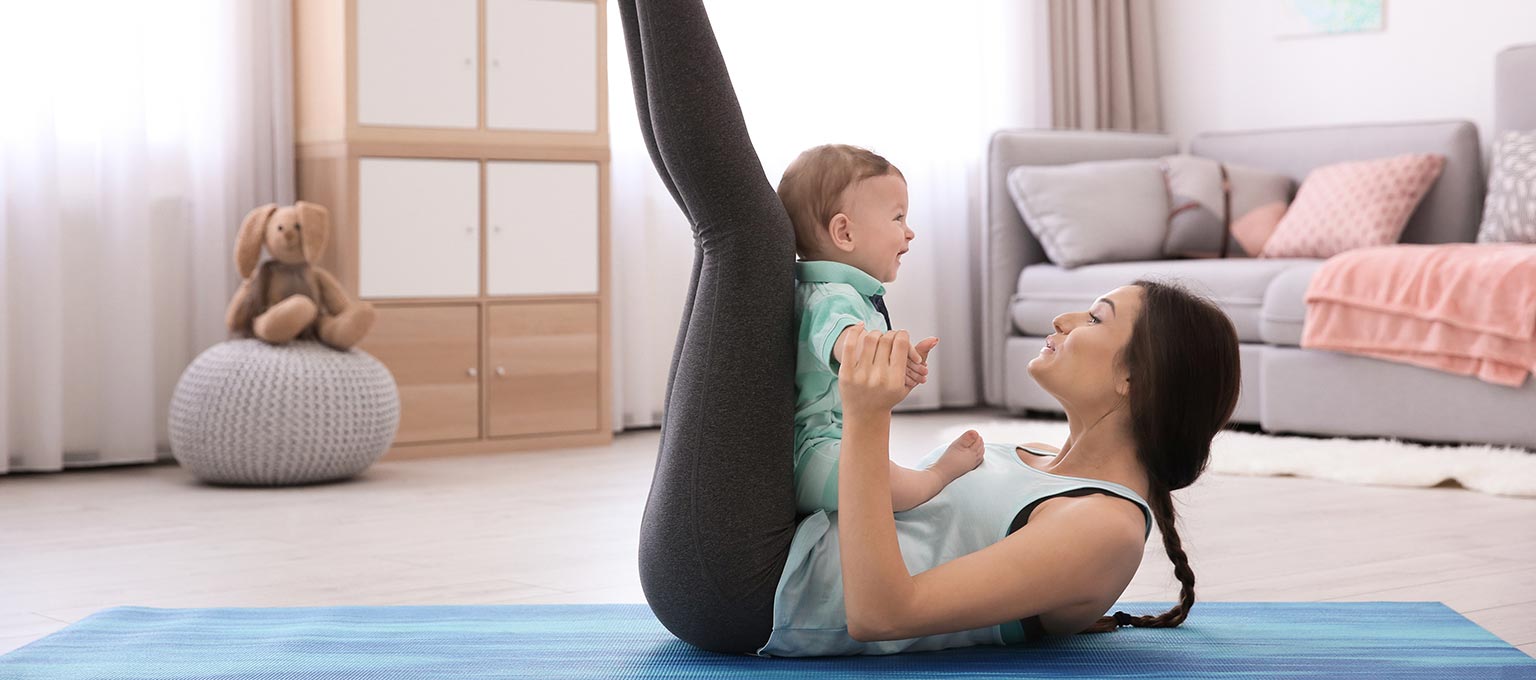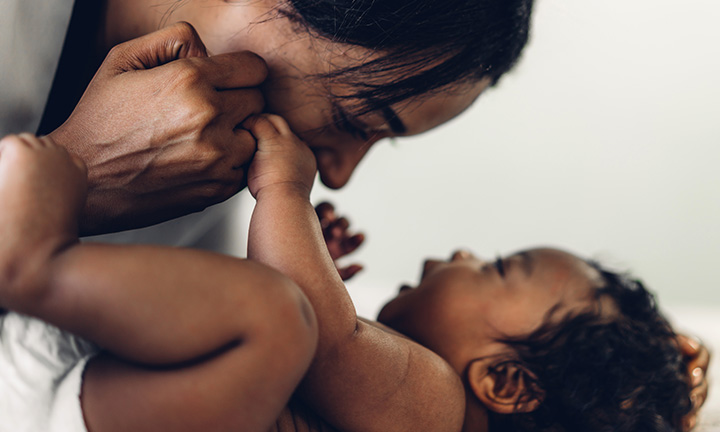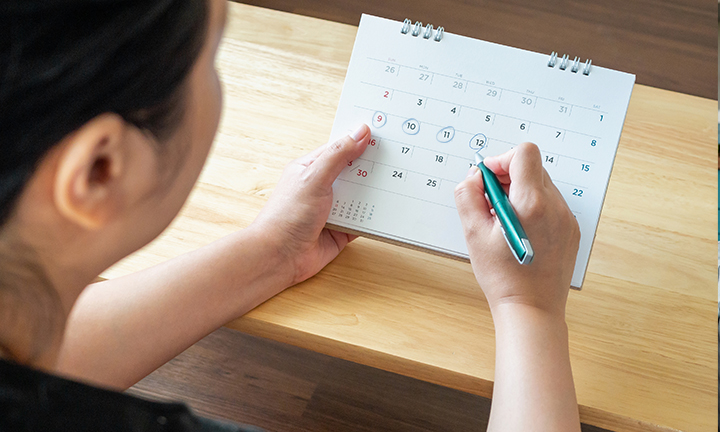
Postpartum Weight Loss


Key Takeaways
Weight loss after birth is gradual. Aim for about 1 to 2 pounds per week rather than rapid loss. Quick weight loss isn’t recommended during recovery.
Your body is healing and adjusting. Recovery, strength, and long-term health matter more than “bouncing back” quickly.
Postpartum weight loss is a common concern for many parents after giving birth. However, it's essential to approach this issue with realistic expectations and prioritize your overall well-being as your body recovers from pregnancy, childbirth, and hormonal changes. Many people lose some weight in the first weeks from fluid changes, then see a slower, steadier pace as sleep, stress, and feeding choices (breastfeeding or formula) affect appetite and energy.
A safe approach focuses on nourishment, gentle movement, and realistic goals rather than “bounce-back” pressure.
Everybody is different, and it’s important to be patient and kind to yourself during this transition. In this article, we’ll explore evidence-based strategies, realistic timelines, and healthy habits to support sustainable postpartum weight loss while prioritizing your physical and emotional health.
Understanding Postpartum Weight Loss
Before beginning your postpartum weight loss journey, it's helpful to understand where your pregnancy weight gain actually comes from. While indulgent cravings (like that nightly bowl of ice cream!) may contribute, much of the weight is due to essential biological changes that support your baby’s development.
Here's a typical breakdown of where pregnancy weight goes, according to the American College of Obstetricians and Gynecologists (ACOG):
These changes are necessary to support your pregnancy and prepare your body for labor and breastfeeding.
Your recommended pregnancy weight gain varies based on your pre-pregnancy Body Mass Index (BMI), whether you're carrying twins, and your general health. The Centers for Disease Control and Prevention (CDC) and ACOG suggest that most women gain between 25 and 35 pounds during a healthy singleton pregnancy, but this number can vary.
Factors like regular prenatal exercise and a balanced pregnancy diet can influence how much weight you gain and how much weight loss after pregnancy is recommended for you. For personalized guidance on losing weight after pregnancy, always consult your healthcare provider. They can help you understand what's healthy for your body before, during, and after pregnancy.
Breastfeeding and Weight Loss
If you're wondering about weight loss while breastfeeding, here's some encouraging news: breastfeeding can actually support gradual postpartum weight loss. As your body produces milk, it burns extra calories, drawing from both the food you eat and the fat stores built up during pregnancy.
Breastfeeding parents burn an estimated 300 to 500 extra calories per day, depending on how often they nurse. This calorie burn from breastfeeding can contribute to weight loss over time, especially when combined with healthy eating and gentle postpartum exercise.
That said, balance is key. Rapid or extreme weight loss while breastfeeding—such as through crash diets or major calorie restrictions—can impact your milk supply and leave you feeling depleted. Your body still needs sufficient energy to make quality breast milk and support your own recovery.
To stay on track, aim for a breastfeeding diet that supports both you and your baby. This includes:
Losing weight after giving birth doesn’t have to mean sacrificing your breastfeeding goals. Focus on nourishing yourself, being kind to your body, and letting breastfeeding and weight loss work together—safely and naturally.
Take a moment to check in with yourself.
How Much Weight Do You Lose After Giving Birth?
It’s important to remember that every person is different when it comes to weight loss. However, you’ll likely lose a noticeable amount of weight immediately after delivery.
Immediate weight loss after labor:
Right after birth, most parents lose about 13 pounds (6 kilograms). This includes:
So if you’re wondering, “How much weight do you lose when you give birth?” the first drop on the scale mainly reflects these pregnancy-related components.
The first week postpartum
In the days following delivery, your body naturally sheds excess fluid retained during pregnancy. This includes extra blood volume and water weight.
Many parents lose an additional 5 to 8 pounds (2 to 3.5 kilograms) during the first week. Some may lose up to 20 pounds (9 kilograms) within the first few weeks.
What about postpartum fat loss?
Pregnancy-related fat stores take longer to lose. After the first few weeks, weight loss typically slows.
For many parents, returning to their pre-pregnancy weight can take 6 to 12 months. Health experts such as ACOG generally recommend a gradual approach—aiming for about 1 to 2 pounds per week once your healthcare provider confirms it’s safe, especially if you’re breastfeeding.
Your body needs time to heal after childbirth. Hormonal shifts, sleep changes, stress, and feeding patterns can all affect how and when weight comes off.
Postpartum Weight Loss Timeline
If you’re wondering, “How long does it take to lose baby weight?” remember that everyone’s timeline is different, and a gradual approach is the safest way.
Here’s a general timeline of what you might experience in the postpartum period:
Everybody is different. Some parents lose weight steadily, others plateau, and some retain a small amount long term—all of which can be normal. The important thing is to be kind to yourself and look after your body.
How to Lose Weight After Pregnancy
Losing weight after pregnancy is a gradual process that involves balancing calorie intake with physical activity. Combining healthy eating habits with regular postpartum exercise over several months can help shed the extra pounds gained during pregnancy. Instead of trying to find the quickest way to lose weight after having a baby, it's important to approach this journey with patience and self-compassion, recognizing that each person's experience is unique.
Keep reading for exercise and nutrition tips:
Exercise Tips: When Can You Start Working Out After Giving Birth?
Working out postpartum not only supports weight loss but also boosts your mood, energy, and overall well-being—benefits that are especially helpful during the early days of parenting. Once you've had your postpartum checkup, your healthcare provider can advise you on when to start exercising after giving birth, especially if you had stitches or a C-section.
Some parents are ready for gentle activity just a few days after a vaginal delivery, while others may need several weeks—particularly after a cesarean or more complex birth. Always listen to your body and start slowly, following your healthcare provider’s guidance.
Here are some tips to safely ease into a postpartum fitness routine:
Remember, when you can start working out after birth depends on your personal recovery. Be kind to yourself, take it at your own pace, and celebrate small milestones as you rebuild strength and confidence.
Read our dedicated article for even more postpartum workout ideas and tips.
Postpartum Diet and Nutrition: What to Eat
Proper nutrition is crucial during the postpartum period to support recovery and provide energy, especially if you're breastfeeding. Avoid weight loss crash diets or drastic calorie restrictions postpartum, as your body needs sufficient nutrients to heal and function effectively. The best diet to lose weight after pregnancy is a nourishing, balanced diet that includes:
Limiting intake of sugary snacks, processed foods, and high-sodium items is also part of a healthy diet to help lose weight after pregnancy. If you're uncertain about your dietary needs, consult with your healthcare provider or a registered dietitian for personalized guidance.
What Is a Healthy Weight for You?
Determining a healthy weight postpartum is a deeply personal journey that varies for each individual. While many resources reference Body Mass Index (BMI) as a guideline, it’s essential to remember that this measure is just one part of the picture.
The average healthy BMI range is generally between 18.5 and 24.9, but it doesn’t account for factors like muscle mass, body composition, or your unique circumstances as a new parent.
It's crucial to focus on how you feel physically and emotionally, rather than just the number on the scale. Your body has gone through incredible changes, and establishing a healthy routine that includes balanced nutrition and gentle exercise can support your journey.
It’s important to engage in open conversations with your healthcare provider to find a weight that feels right for you. Above all, be kind to yourself during this transition—each step forward is a victory worth celebrating.
More Tips: Postpartum Rest, Hydration, Self-Care, and Support
While healthy eating and postpartum exercise are key strategies for losing weight after pregnancy, your body also needs adequate rest, hydration, support, and sometimes professional intervention to fully recover. Here are some essential tips to help support your overall well-being and long-term postpartum weight loss.
FAQS AT A GLANCE
Most people lose around 13 pounds (6 kg) right after childbirth, which includes the baby’s weight, as well as the weight of the amniotic fluid and placenta. When it comes to fat loss, with a healthy diet and regular exercise, you may lose about 1 pound (0.5 kg) a week. It may take up to a year to get close to your pre-pregnancy weight.
The Bottom Line
Your postpartum journey is unique, and there's no "one-size-fits-all" approach to recovery or weight loss. Focus on progress, not perfection, and surround yourself with supportive people who encourage your well-being. Whether it’s a partner, a friend, a lactation consultant, or your healthcare provider—don’t hesitate to reach out for help when you need it.
The key is to be patient with yourself and your body. Eat well and exercise because it makes you feel great, and focus on how amazing your baby is, as well as all the good things in your life right now. Your postpartum well-being is as important as the number on the scales, so be kind to yourself and give your body enough time to adjust.
Another thing you’re likely focusing on during your postpartum period is all those diaper changes. Get a little help by downloading the Pampers Rewards app to earn Pampers Cash on all your purchases.
- American College of Obstetricians and Gynecologists. Your Pregnancy and Childbirth: Month to Month, 6th ed. (Washington, DC: American College of Obstetricians and Gynecologists, 2015).
- ACOG: Interpregnancy Care
- CDC: About Sleep
- CDC: Alcohol
- Cleveland Clinic: Postpartum
- Cleveland Clinic: Postpartum Thyroiditis
- Cleveland Clinic: What to Expect After Giving Birth
- Mayo Clinic: Breastfeeding nutrition: Tips for moms
- Mayo Clinic: C-section recovery: What to expect
- Mayo Clinic: Postpartum care: What to expect after a vaginal birth
- Mayo Clinic: Postpartum Depression
- Mayo Clinic: Weight loss after pregnancy
- Mayo Clinic: Women’s Wellness: Breastfeeding and weight loss
- National Library of Medicine: Effects of Experimental Sleep Restriction on Weight Gain, Caloric Intake, and Meal Timing in Healthy Adults
- La Leche League International: Weight Loss While Breastfeeding
- Womens Health: Recovering After Birth
- Cleveland Clinic: Exercise After Delivery
- Mayo Clinic: Postpartum Depression







